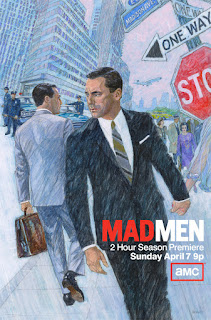Trying something new, with the first in an occasional series listing some of the things I've tripped over on my online travels in recent weeks.
Nate Thayer’s A Day in the Life of a Freelance Journalist - 2013 popped at the beginning of last week, raising that perennial bugbear about writers getting paid for their work. Thayer made a reasonable point, although I felt that the force of his point was somewhat diluted by the fact that he sounded like a bit of a douchebag when he attacked rookie editor Olga Khazan of The Atlantic, just for asking a simple question.
Senior Editor at The Atlantic Alexis Madrigal fired back with A Day in the Life of a Digital Editor, 2013. Madrigal made some valid and interesting points about the realities of publishing economics. But, again, I think he missed his target and it doesn't really address the issue of fair remuneration for jobbing writers. Nevertheless, both sides of the argument had merit and raised various points worth debating. (I’d recommend scrolling down to the comments to read Clay Shirky’s contribution to the discussion).
But, hold on a minute! What’s this? The story took an unexpected swerve when Jeremy Duns joined the fray. A desire for payment in return for written work is all well and good...as long as you actually wrote the damn thing and didn't just brazenly plagiarise someone else’s work. In a pair of blog posts unambiguously titled Nate Thayer is a plagiarist and How Nate Thayer plagiarizes, Duns presented compelling and persuasive evidence to suggest that the original article by Thayer that The Atlantic wanted to run in a somewhat truncated form was, in fact, a work of plagiarism. Oh snap!
(The carousel hasn't stopped spinning just yet, bear with me.) It took Cord Jefferson at Gawker to pull all this distracting drama back to the central argument that kicked this all off in the first place, in the piece When People Write for Free, Who Pays? Lots of words had been written bouncing off this crucial point at slightly-off angles, but Jefferson nails it, boiling it all down to this: "What kind of writing community do we cultivate by not paying writers?"
If in doubt, always refer to this: Should I Work For Free?
On a related note, Tanner Colby analyses the journalistic ethics and biases of Bob Woodward with specific reference to his book Wired: The Short Life and Fast Times of John Belushi in a superb piece for Slate. All the President’s Men (co-written with Carl Bernstein) is now seen as a landmark in investigative journalism, but “Wired was so wrong, Belushi’s manager said, it made you think Nixon might be innocent.” Colby states “a lot of what Woodward writes comes off as being not quite right—some of it to the point where it can feel quite wrong.”
Some more quick hits of online goodness:
Coffitivity - the ambient sounds of a coffee shop because “the mix of calm and commotion in an environment like a coffee house is proven to be just what you need to get those creative juices flowing.”
A fantastically entertaining and thorough piece by Margaret Heidenry at Vanity Fair about the rise and fall and possible resurgence of the Spec Script in Hollywood, showing how the power of the writer has ebbed and flowed over the years from “schmucks with Underwoods” to Joe Eszterhas and Shane Black’s million dollar paydays, and the impact of emerging technologies on negotiations and money games.
Lars von Trier’s Nymphomaniac is almost upon us, and The Independent has an interview with one of its stars, Stacy Martin. Worth reading for the Stellan Skarsgård quote alone, stating that Nymphomaniac will be "sexually explicit but, believe me, it will be a very bad wanking movie".
Lastly: How Brian Sanders, a 75-year-old illustrator living outside of Cambridge came to design the gorgeous poster for season six of Mad Men.


No comments:
Post a Comment